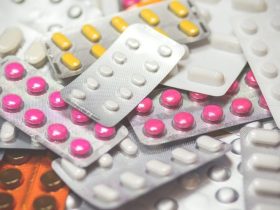Iron deficiency, the most prevalent nutritional disorder globally, can lead to debilitating health conditions if left unchecked. It’s crucial, therefore, to understand how to naturally boost your iron intake through dietary strategies.
In this article, we’ll explain what iron deficiency is, what causes it, and provide a few effective dietary strategies to help you combat it.
What Is Iron Deficiency?
Iron deficiency occurs when your body’s iron stores are too low for proper oxygen transport within the blood. It can lead to anemia (low red blood cell count) and impaired physical and cognitive function.
This condition is most common in infants, children, adolescents, and pregnant women due to their increased iron requirements during development or fetal growth. It’s also seen among vegetarians and vegans, as the main dietary source of iron comes from animal products like red meat.
What Causes Iron Deficiency?
Iron deficiency can be caused by a variety of factors, including genetics, age or gender, diet, and lifestyle. People who suffer from gastrointestinal disorders such as ulcerative colitis are also at risk.
Inadequate dietary intake can easily lead to iron deficiency as well. Vegetarians and vegans must ensure they’re getting enough non-animal sources of iron (such as leafy greens, legumes, and fortified cereals) to meet their daily needs.
Dietary Strategies to Combat Iron Deficiency
Fortunately, there’s a range of dietary strategies you can employ to combat iron deficiency:
- Boost your intake of iron-rich foods. Foods such as red meat, poultry, fish, eggs, lentils, beans, dark green vegetables, and iron-fortified cereals are all excellent sources of iron.
- Increase your vitamin C intake. Vitamin C helps your body absorb iron more easily, so consuming foods like citrus fruits, strawberries, bell peppers, Brussels sprouts, and broccoli can help you get more out of the iron you consume.
- Look for iron supplements. If you are unable to get enough iron through diet alone, there are chewable iron supplements that can help increase your intake – just make sure to speak with your doctor before taking them.
- Avoid drinking tea or coffee with meals. Tannins found in these beverages can decrease the amount of iron your body absorbs from food, so try to have them between meals instead.
These are a few ways you can help combat iron deficiency. By incorporating these strategies into your diet, you can ensure your body has the iron it needs to stay healthy.
Strategies to Increase Iron Absorption
In addition to increasing your overall iron intake, there are certain strategies you can use to help increase the amount of iron your body absorbs.
Consuming foods that are high in vitamin C is one way to boost absorption as it helps your body convert non-heme (plant-based) iron into a form that’s more easily absorbed by the body. Similarly, consuming iron-rich foods with healthy fats can also increase absorption.
You can also try adding citric acid or acidic ingredients to your meals – such as lemon juice or tomatoes – as this will also help enhance iron uptake. Lastly, avoid drinking too much milk with meals, as the calcium it contains can impede iron absorption. The same goes for caffeinated beverages.
By taking these steps, you can ensure your body is able to absorb all the iron it needs to stay healthy.
Final Thoughts
Iron deficiency can lead to a host of health issues if left unchecked, so it’s important to understand how best to combat it through dietary strategies. Increasing your intake of iron-rich foods, supplementing with chewable iron if necessary, and taking steps to enhance absorption can all help keep your body’s iron stores at healthy levels.
Remember that it is important to speak with your doctor before beginning any new dietary regimen or supplement program. With their guidance and the strategies outlined above, you’ll be well on your way to maintaining a healthy iron balance.
So, start incorporating these tips into your lifestyle today and enjoy all the benefits that come with a healthy iron balance!










